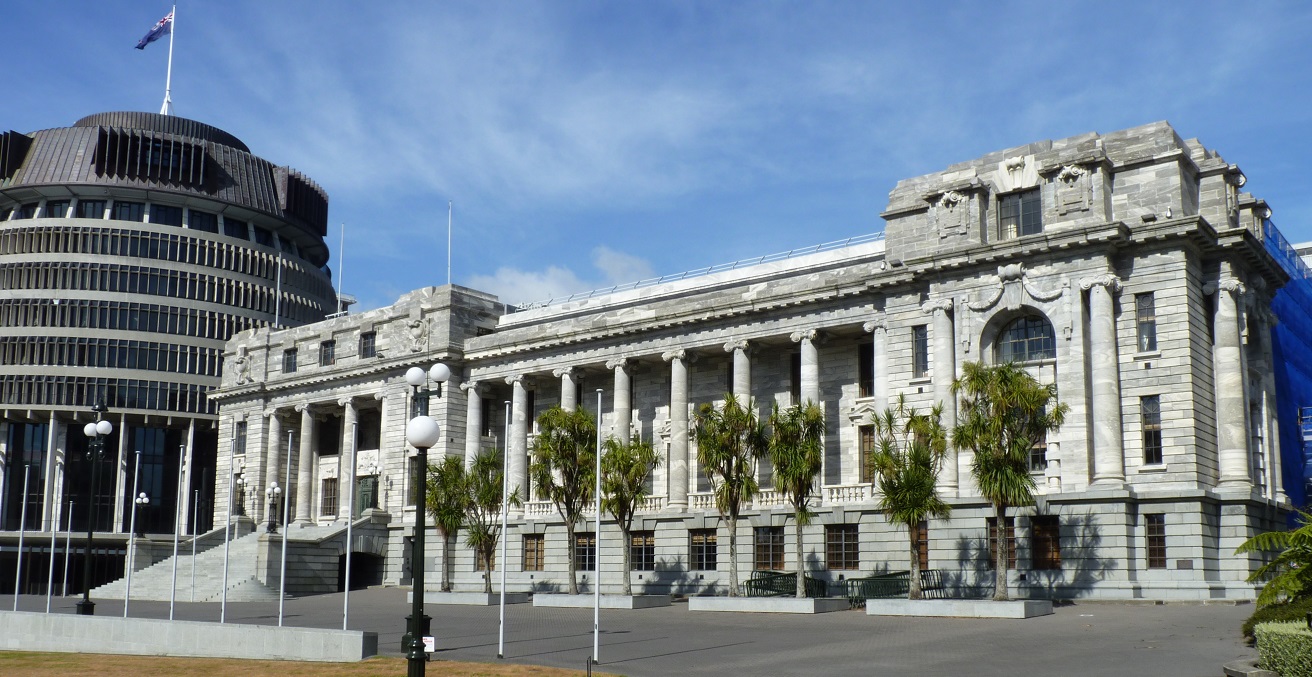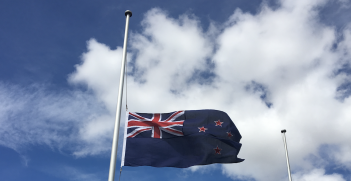It's the Political Product, Stupid

Changing the messenger without changing the leader won’t stop Jacinda Ardern being re-elected in the 2020 New Zealand Election. In order to have a shot at success, New Zealand’s new opposition leader will need re-frame his party’s message for a post-COVID-19 world.
Jennifer Lees-Marshment will be presenting at a webinar hosted by AIIA National Office. Register here for “The Dance of Political Power: Scott Morrison and Jacinda Ardern’s Political Management” on 8 July 2020.
On 22 May, after a week of spectacularly bad polls results, New Zealand’s National Party (equivalent to Australia’s Liberal Party) elected a new leader, Todd Muller, just a few months out from the 2020 election. Many are asking what impact this leadership change will have on “Jacinda-mania.” The short answer is unless the National Party also changes the product they are selling, changing the salesman won’t make much difference. Especially if the new salesman talks back to a pre-COVID-19 era.
Jacinda-mania was never a thing and Ardern’s popularity is built on an approachable and competent brand
Jacinda-mania is not really a thing in New Zealand anymore – if it ever was. In-depth election analysis showed there were significant reasons behind the 2017 election outcome, with both main parties, Labour and National, having strengths and weaknesses. Labour had the most popular policies and Jacinda Ardern was strongest when it came to being a relatable and approachable leader. This wasn’t some quick makeover applied to a new leader either – Ardern had built a solidly positive relationship with the public when she was just an MP over several years leading up to 2017. Becoming party leader and then prime minister just shone a light on her effective leadership style. And under this ever-spreading spotlight, then-Prime Minister Bill English’s lack of relatability was even more visible. Despite National’s embedded reputation for being an effective government, the policies the party offered to voters were the least aligned with voter opinion of any of the four biggest parties in New Zealand.
Doubts about Ardern’s competency in 2017 have now been thrown out the window because of her effective crisis management as prime minister. Where Ardern was weak in 2017 is where she is now strongest. In 2017, she was seen as lacking competence, but in 2020 she has now seen the country through three crises, and even carried on governing whilst heavily pregnant with her first child. Ardern has almost has the perfect brand right now: both relatable and competent. This puts her in a strong position going into the election.
Question the product National is offering, not just the change in salesman selling it
This means that when we ask what difference the new opposition leader can make, we have to reflect critically on what he, and the National Party he now leads, have to offer. And this means looking at the product on offer, not just the change in salesman selling it. Obviously it is early days, but there are both good and bad signals in terms of what Todd Muller is offering. On the plus side, in his first speech he said he was “interested in opposition for opposition’s sake.” If he sticks to this, he will avoid a lot of the mistakes his predecessor Simon Bridges made, which included not only criticising a government during their effective handling of a global pandemic but teasing the prime minister about dying her hair. Muller also qualified National’s age-old emphasis on economy by saying he was driven by community, and talked of “your butcher,” “your farms,” “your shops,” “your families,” and “your economy” and said, “I’m about what’s best for you and your family.” On the downside, initial party online communications about this speech used “man in a suit in an office talking about business” visuals. This is business as usual – the product has not yet changed.
More importantly, Muller had a “Make America Great Again” hat, a key element of Donald Trump’s 2016 presidential campaign, on full display in his office when MP (although he later decided to keep it packed away in a box after moving to the leaders office). And this highlights a potential campaign strategy that the National Party will be very tempted to follow: a highly negative, big-data driven approach which plays on voters’ fears and anger in a post-COVID-19 world. It is exactly the sort of tactical campaign often pushed by Australian consultants Textor-Crosby, who have advised Australian Liberals and the UK Conservative Party.
2020 may provide the perfect conditions for this type of campaign. New Zealand might have seen the back of the virus, but the rest of the world hasn’t, and like all countries, it is globally connected so what happens elsewhere still affects New Zealand. There are people who feel let down by the Labour government for their failure to deliver on big infrastructure issues such as housing, and another group who have suddenly found themselves struggling to maintain their business or are even out of their high-flying careers in the tourism or travel industries during lockdown and the economic crisis that has followed. Their disposition to anger at what has been lost, as well as fear for a suddenly unknown future, is perfect breeding ground for marketing that plays on people’s fears and can be delivered directly to people’s mobile phones through individualised ads and messages on social media.
Todd Muller has already indicated this type of thinking. A radio interview suggests he believes voters will just come back to the party rather than the party needing to move to them. Muller talked about the context changing in favour of National because those “people in the middle [of Labour and National] – they have jobs at risk. Most of them will be in small businesses that are on the verge of collapsing” and will “want to actually vote for a team” to get then out of “a pretty dark situation for New Zealand.”
Final lessons: A change in salesman who delivers the same old political pitch won’t work for what lies ahead
In the 1992 US Presidential election, Democratic candidate Bill Clinton coined the phrase “It’s the Economy, stupid” to reflect the need for left-wing parties to focus on economic management and competence. In 2020 in New Zealand, the National Party needs to take the mantra, “It’s the political product, stupid” and emblazon it on their forehead (or at least into every strategic planning meeting), and focus on redesigning their political product instead of relying on a change in salesman to deliver the same old political pitch created for a time vastly different to the one we all face ahead of us.
Dr Jennifer Lees-Marshment is an Associate Professor at The University of Auckland where she researches political marketing, political leadership, and political management. Jennifer is author/editor of 16 books. She has interviewed over 200 political practitioners involved in campaigns, parties, and government including advisors to world leaders in the UK, US, Canada, Australia, and New Zealand such as the Chief of Staff to Australian Prime Minister Scott Morrison and New Zealand Prime Minister Jacinda Ardern. See www.lees-marshment.org for further details.
This article is published under a Creative Commons Licence and may be republished with attribution.




